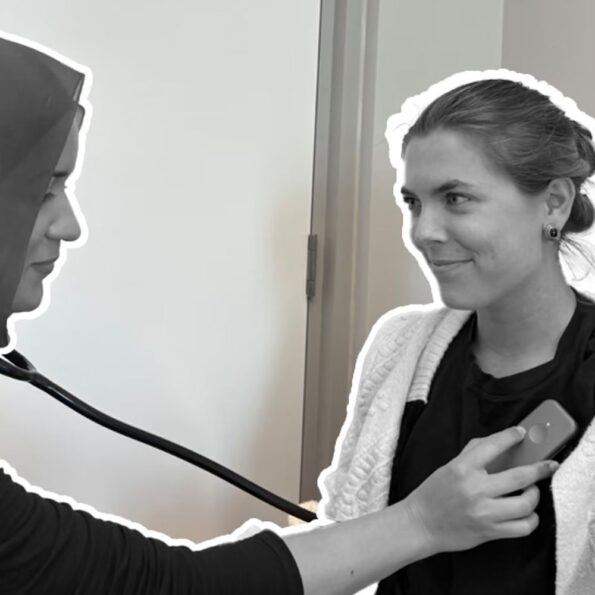UK doctors develop AI stethoscope to detect heart disease early:Modern stethoscope uses a card-sized microphone device to spot subtle heartbeat changes

The stethoscope has been in use since 1816, enabling doctors to listen to heartbeats and chest sounds. At the time, doctors usually placed their ear directly on a patient’s chest to listen to the heart and lungs, which could be awkward and not always effective.
But now, researchers in the UK say artificial intelligence has given it a superpower, the ability to detect serious heart conditions in just seconds. What makes it different Instead of the usual chest piece, this modern stethoscope uses a card-sized device with a built-in microphone. It picks up tiny changes in heartbeat and blood flow that the human ear can’t catch. It also runs an ECG (electrocardiogram) and sends the results to the cloud, where AI trained on tens of thousands of heart records analyses the data. The study behind it A team from Imperial College London and Imperial College Healthcare NHS Trust tested the AI stethoscope, made by US company Eko Health, across 96 GP surgeries involving over 12,000 patients. Another group of GP surgeries continued using regular methods for comparison. Here’s what they found: A 200-year-old tool gets a high-tech twist
Doctors say this could be a major shift in heart care. Catching these conditions early means patients can start treatment sooner, instead of waiting until they’re rushed to the hospital in an emergency. Dr Sonya Babu-Narayan, clinical director at the British Heart Foundation, put it this way: This is an elegant example of how the humble stethoscope, invented more than 200 years ago, can be upgraded for the 21st century. She added that an earlier diagnosis is vital because it helps people “access the treatment they need to live well for longer.” The results were shared at the European Society of Cardiology congress in Madrid, the world’s biggest heart health conference.
How this could reshape healthcare Beyond just helping doctors detect hidden heart issues, the AI stethoscope could alleviate pressure on the broader healthcare system.
By spotting conditions earlier, fewer patients would need emergency hospital visits, waiting lists could be shortened, and treatment could begin before problems become life-threatening. For GPs, it means quicker, more reliable check-ups right in their clinics. For patients, it means peace of mind and faster access to care.
And for the healthcare system overall, it represents a move toward smarter, more preventive medicine, where technology helps doctors stay one step ahead of disease.
Search
Recent
- Steve Jobs last email: He wrote to himself on Apple email ID: Read full message
- ‘Classified documents or Epstein files?’ White House bag toss leaves internet guessing | watch
- 2 associates of Lawrence Bishnoi gang held, arms recovered
- Over 26,000 people affected by floods in Gurdaspur
- 33 killed, 7 lakh evacuated: Pakistan’s Punjab faces biggest flood in history




